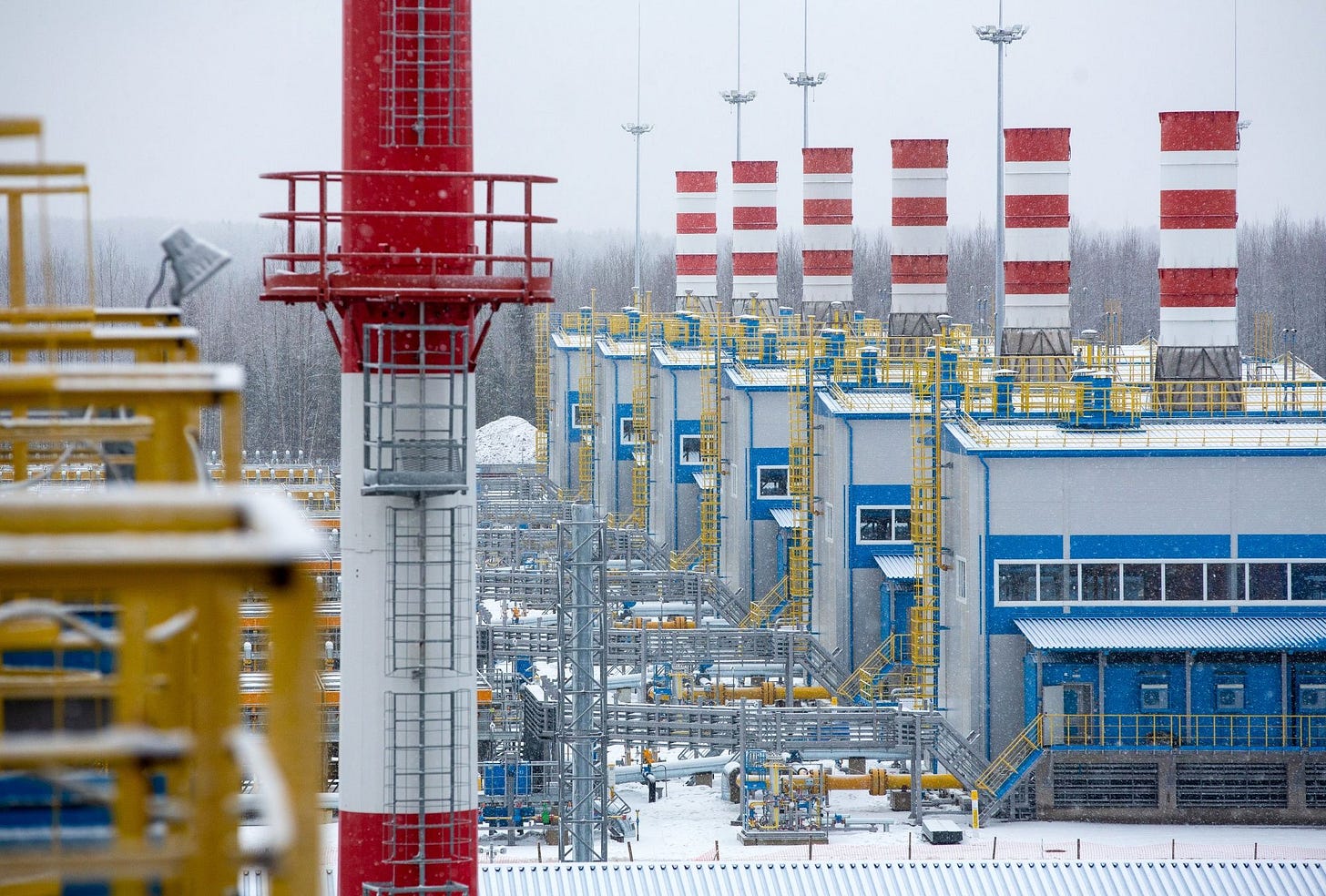To the Stars with Data: February 27 2022
Hello Datanauts!
Like most of you, my mind, time, and emotions have been focused on Ukraine this week. Out of respect for everything else going on, this issue is going to be shorter than usual. Make sure to spend time with your loved ones and tell them you love them.
Now, let’s go to the stars with data.
Thought-Provoking Data Viz
🌊 NOAA’s US Sea-Level Rise Viewer
Quick hits. Now in its third iteration, the Sea Level Rise Viewer created by the US’s National Oceanic and Atmospheric Administration (NOAA) aims to visualize the impacts of sea-level rise in the US. Users are able to zoom into specific areas and even change the level of sea-level rise between 1 and 10 feet. Though the tool is intended for officials and professionals dealing with coastal resources and land use, I find the tool thought-provoking because it shows just how susceptible we are to sea levels.
Earth News

⛽ EU to unveil strategy to break free from Russian gas
Quick hits. The EU is poised to unveil its strategy for breaking free from Russian gas on March 2. Notably, the EU was planning to unveil its strategy before the Russian invasion of Ukraine, but it is now being approached with more vigor. Rather than relying on oil and gas, the EU plans to double down on renewable energy sources. The strategy calls for a 40% reduction in fossil fuel use by 2030 and requires European energy companies to use natural gas in their storage tanks (vs. gas).
Digging deeper. This plan comes as countries across Europe switch away from oil and gas as their primary energy sources. Some recent and notable examples include France’s new nuclear power plant strategy, the UK’s increasing development of offshore wind projects, and Germany approving $68b in spending to accelerate its climate and green initiatives.
Other Earth news
💬 Meta announces a plan to create universal, instant speech translation for its metaverse. They’ll approach this with two projects: No Language Left Behind, where they’ll ensure as many languages as possible are included in their repertoire, and Universal Speech Translator, which will focus on instant speech translation. Here’s Meta’s blog post on the topic.
⚖ China’s huge AI regulation bill comes into effect on March 1. The bill aims to prohibit the usage of personal data in algorithms that set prices, control search results, recommend videos, and filter content, among many other orders. Here’s an English version of the regulation.
🩺 Researchers develop biodegradable surgical “duct tape” to help heal wounds in the GI tract. This duct tape is important because sutures in GI tracts can have up to a 20% fail rate in high-risk patients. Here’s the paper for you nerds out there.
Space News
👽 Searching for technosignatures with Dr. Chenoa Tremblay (Video)
Quick hits. Though this isn’t a piece of news, I found this interview thought-provoking, so I thought I’d share. In the interview, Fraser Cain, a space journalist and podcast host, talks with Dr. Chenoa Tremblay on her research in searching for technosignatures—technological indications of extraterrestrial intelligence—from the center of the Milky Way.
Other space news
👨🚀 ESA to set up a committee to study human space exploration options. Notably, they are ensuring to staff the committee with more than just scientists, including professionals such as artists and philosophers.
⌚ Researchers measured time dilation between two clocks a millimeter apart and it was a mere 0.0000000000000000001 seconds. (Time dilation is the difference in time between two clocks due to them being at different levels of gravity.) This is the smallest time dilation measurement ever made. Here’s the paper for the nerds.
🛰 The EU plans to create a communications satellite constellation. They estimate it will cost €6 billion ($6.8b) to build and will be ready for initial service in late 2024, going fully live in 2027. Here’s the website and the FAQ.
🌌 Transiting Exoplanet Survey Satellite (TESS) finds almost 100 quadruple star systems, or start systems with 4(!) stars. There are likely a lot more, but these 97 met the researchers’ stringent standards.
Future-Thinking Companies
🚲 Clip. Based in Brooklyn, New York, they make a battery that clips onto the front wheel of a bike to make it electrically-powered. They were included in Time Magazine’s best 100 inventions of 2020.
🧼 Blueland. Also based in New York, they aim to fight the single-use plastic problem by selling cleaning products in tablet form. The idea is that you mix the tablets with water from your house instead of shipping cleaning products that are normally 90%+ water. They raised $20m Series B in Feb 2022.



